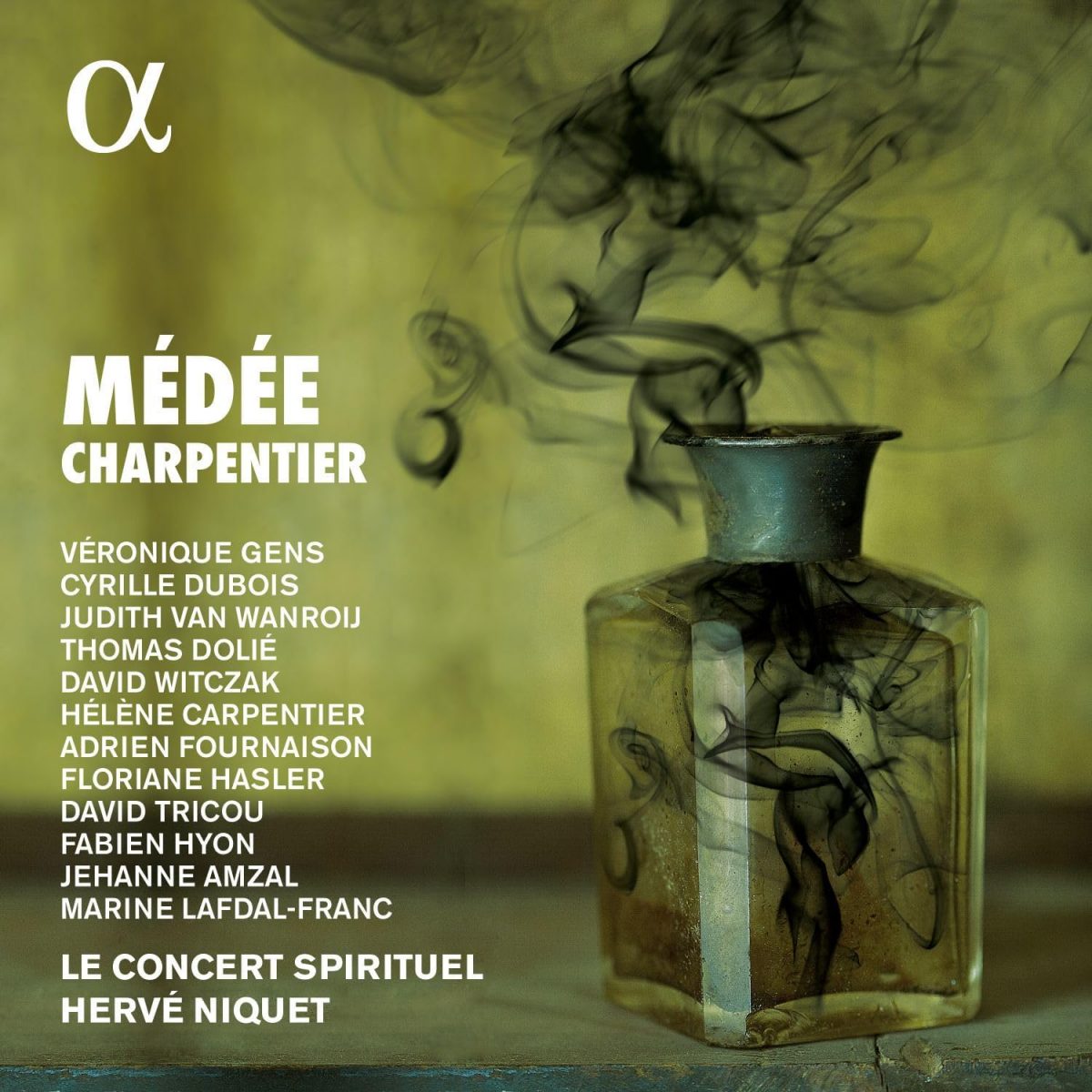Véronique Gens (Médée), Cyrille Dubois(Jason), David Witczak (Oronte), Le Concert Spirituel conducted by Hervé Niquet
170:43 (3 CDs)
Alpha 1020
It is nearly 50 years since William Christie’s first recording of Marc-Antoine Charpentier’s Médée (harmonia mundi) vividly illustrated that French Baroque opera meant more than Rameau and the occasional nod in Lully’s direction. Since then Médée has become firmly established and acknowledged not only as Charpentier’s operatic masterpiece – though I would argue that David et Jonathas (1688) should be considered its equal – but one of the peaks of the repertoire. First performed at the Paris Opéra (Académie Royale de Musique) in 1693 it was one of the first operas given there after Lully’s monopoly was ended by his death six years earlier. Despite the presence of Louis XIV at the premiere, the opera was not a success, receiving ten performances before being withdrawn and not revived until the 20th century.
Cast in five acts with the usual prologue, Médée is a tragédie en musique that for once lives up its genre, a feature that may have some bearing in its contemporary unpopularity. By the end of the opera not only are Créon, King of Corinth and his daughter Créusa, the new amour of Jason dead, but in her fury at Jason’s treachery the sorceress Médée (Medea) has committed filicide. Yet it is measure of the quality of Thomas Corneille’s libretto that far from being simply an irredeemable villain poisoned by jealousy, Médée emerges as a deeply ambivalent character driven to madness by the ingratitude of Jason. The picture becomes more opaque still if her earlier services (the Golden Fleece) to Jason are taken into account. And it is more than just the text, for Charpentier gives to Médée not only music that is highly dramatic but in her act three air ‘Quel prix mon amour’ the most touchingly beautiful music in the score. Musing on whether she should murder her sons, the product of her love for Jason, also give momentary relief from the derangement from which Médée now suffers, her servant Nérine a little earlier having spoken of her ‘Eyes staring wildly, her steps unsteady’. The role is one tailor-made for Véronique Gens, one of the great tragediennes of our day and a singer to compare with the creator of the role, Marthe Le Rochois, the creator of all the leading female roles in Lully’s tragedies lyriques and who was considered without parallel for her mastery of the declamatory style. Gens’s mastery of the role ranges from the imperious in the infernale scene at which she is at her most powerful, displaying some awesome chest notes, to the sheer, pure beauty of her singing in the air noted above.
Her errant husband is given a poor hand by comparison, at his best in the tenderness he displays toward his new love Créuse, its cynical political implications drowned out in the exquisitely sensitive music Charpentier gives the couple in their scenes together (act 1, sc 5 and act 4, sc 2). The experienced Judith Van Wanroij (the cast listing spelling is used in the heading but here the more usual spelling is adopted) is at her best in this kind of gentle heroine role and here she is utterly engaging. There are, too, few finer stylists in haute-contre heroic roles than Cyrille Dubois, though here the fast vibrato that is a part of his voice does occasionally threaten to be a distraction. The only other significant role is that of Creon, which asks for little more than Thomas Dolie’s richly authoritative baritone until the great scene in which he is made mad by Médée (act 4, sc 8/9). Then considerable vocal acting powers are called upon, a demand met admirably by Dolié.
Among smaller roles baritone David Witczak’s Oronte, the deposed suitor of Créuse, should be noted, as should the enchantingly fresh soprano of Jehanne Amzal in several comprimario roles. Her singing of the Italian air included in the act 2 divertissement is one of the delights of the set. Hervé Niquet’s direction of the prologue, the customary panegyric dedicated to Louis XIV with Glory, Victory and Bellone (goddess of war) doing the honours, is curiously – if arguably understandably – briskly uninvolved. Thereafter it improves significantly without ever becoming one of his finest achievements. Notwithstanding the set is required listening for all Gens’s many fans, who will also encounter a great opera and much excellent singing.
Brian Robins
